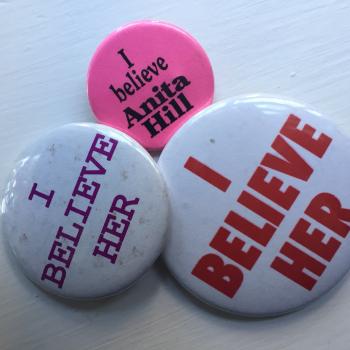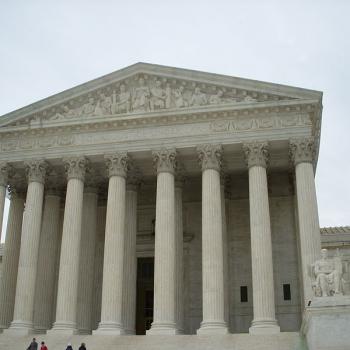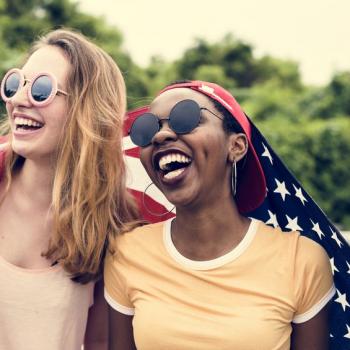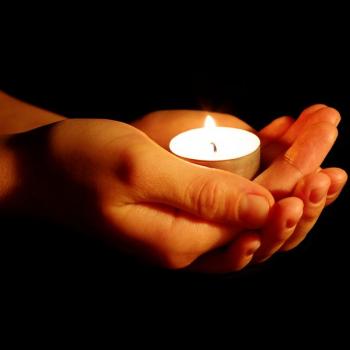Dear Casey,
I completely agree with you, Elon is NOT the most ideal place to have discussions about race. One aspect of this is not only the overall lack of diversity but also the lack of diversity within the white community. I feel like most students here are from the same type of area (suburb, majority white, upper middle class) and I think that is what people are comfortable with.
Someone said something interesting to me one day when we were having a conversation about race. He said, “ If I wanted, I could honestly go all four years of being at Elon and never interact with a single person of color.” That really surprised me because when you think about it, it is very plausible. Chances are your roommate is not a person of color, chances are you might have no person of color in your class, chances are you do not have a person of color in your friend group, chances are none of your professors are people of color so once you look at the evidence, it looks scary.
I feel like the classroom is where a lot of black students experience the most discrimination at Elon,which is why we do not hear about it. My personal belief is that we as students feel a connection with our classmates and do not want to report them for bias because we have a constant interaction with them. I know that I never reported anything because either I felt like if my professor didn’t address it then it probably wasn’t worth addressing or I think that it was an isolated incident that only happened once even if it was not the first time. I think it is easier to speak up when your aggressor does not have a personal connection with you/ you do not have to interact with them on a day to day basis. With that being said, yes I have been expected to sort of speak for my race in classes that dealt with racism or race in general. But even if it is not explicitly said, I get a feeling that my voice is perceived as the voice of my race.
I agree and disagree with your statement about racial social segregation. I agree that it is not the Black student’s responsibilities to befriend and educate white people and that Black students deserve their own spaces. But what I do not want to believe is that white students have to have this deep connection with black students for them to realize and understand our struggle.
Why can’t white people see our struggle? Why can’t white people just listen to what the Black people have to say?
Now, I understand what you are saying, yes having that connection does help because it humanizes the issue but why does a white person have to connect with a black person to see the issue of racism? For me the major issue is what white people are being taught and fed about racism and black people. Maybe that’s where white allies can do the most productive work by changing the way people are being taught about racism. As an ally, what is your main goal and what do you do to achieve that goal? I think this is an important question to ask to understand how to help someone become a better ally.
This idea of ontological expansiveness is interesting because I think, especially from my personal experience at Elon, black people are forced into white spaces and have to operate in white spaces, while white people can avoid black spaces. So this is just the flip side to that coin of white people have the ability to operate in any space that they choose but black people are limited to the space that they are allowed to exist in.
This idea was discussed in James Cone’s book Black Theology & Black Power. He discussed how integration wasn’t really integration because it was not an equal exchange between white and black societies. It was more of taking black students and forcing them to exist and function in white spaces instead of taking students from white schools and placing them into black schools and taking black students and placing them into white schools. He says that this “integration” was a way to further perpetuate the idea that whiteness is better. What do you think of this concept?
Another thing that Cone brings up is the issue of white liberals who think that since they are fighting for the rights of black people, they cannot be racist. I feel like that is another issue, that no one wants to take responsibility for their racism. What do you think we can do to combat that on this campus?
Also, I want you to know that it is okay to not be comfortable and to be confused because there is no right or wrong answer to this problem. This problem does not have any clear solutions because if it did we would not be having this conversation right now. But I commend you for putting in the effort to try.
Dear Chris,
I completely agree that one of our main issues at Elon is the lack of diversity among the white population. It’s classic white privilege to not have to interact with people of a different race than you, but that’s especially true at Elon. That goes right into your point about how Black people, especially here, are really forced to go into white places when that’s pretty much never something white people have to do if they don’t want to.
I think that also plays into what you were talking about with integration. It’s a really good point that I’d never thought about how integration serves as a way of further diminishing Black people. It’s really obvious in high schools where there’s a mix of white/POC and middle/working class students, but the white and wealthy students are separated from the other students by being on AP or Honors tracks where they never have to interact with the mostly Black and Latino students in the non-Honors classes. That’s a great way to make POC seem incompetent in the eyes of those white students.
My counter-question for that would be do you think it’s explicitly intentional or just something that happens?
My tendency is to think that it wasn’t someone actively deciding to integrate schools to further harm Black students’ dignity, but more of that issue you mentioned about the integration being one-way. White students won’t end up in Black schools because it’s hard to force white parents to send their kids to “inferior” schools populated mostly by POC. Chances are it’s much more difficult to pass legal regulations that force white parents to send their children to Black schools, and if they do go into effect, white parents are more likely to leave the district to avoid those laws. That means most of those affected by integration are poor white students whose parents are unable to leave or Black students forced into white schools where they’re already devalued and looked down upon.
Back to my thoughts last time about connecting white people with POC, while I of course still believe white people would care more if racial issues affected those closest to them, I think there are other ways that the same concept of personal connection can be used to reach a more attainable solution.
In my experience it’s difficult to initially convince a white person that racism is a significant problem in our society unless they hear first-hand stories of people’s experiences with racism. Ideally white people would just be able to listen to Black people’s voices, but I think the reality is that most of us, at least in the North, grow up in a culture that so thoroughly tells us race isn’t a problem that it takes a jolt for us to come out of that and wonder if maybe it is still an issue after all. I can and do try to provide that jolt as a fellow white person, but the fact is that of the white people I know who actively think and care about racism, I don’t know any of them who learned to do so through a class or by going to listen to a speaker. All of them had some personal connection to a POC (or more than one) who helped them understand. Sometimes it was a friend and other times it would be a classmate or someone who lived on their hall or someone they worked with at a summer job, but it was always someone they knew.
Maybe there are white people who could learn just by listening, but most of us have ears so stopped up by ignorance and complacency that until someone comes up and taps on our shoulders, we can’t even hear Black people screaming. It would solve a lot of problems if I as a white ally were able to find a way to talk to other white people about race in a way that made them pay attention and truly listen, but if there’s an effective way of doing that, I haven’t found it yet. I find myself consistently met with closed ears and indifference.
I completely agree about righteous white liberals being some of the hardest to deal with. I had an intense experience with that last semester when I was studying abroad with some American students in Vietnam. Our group was pretty close, but one day we got in a fight that split us down the middle when two of the white men in the group started arguing that it was okay to question the legitimacy of the Black Lives Matter movement. When we fought back, they would fend off everything we said with “We’re not the enemy! We’re liberal people!” It’s hard for me to really get at how deep my sense of helplessness and frustration was in that situation. That experience made me feel increasingly that white liberals are perhaps the greatest barrier to effectively talking about race in our society. If even white people who in theory stand for this issue can’t admit that it affects them and won’t take responsibility, it’s hard to find hope that anyone else will listen.
That actually relates to one of the core ideas of philosopher and political scientist Iris Marion Young in her book Responsibility for Justice. One of Young’s main points is about the difference between guilt and responsibility. Guilt, she says, is for situations in which a person or group of people is directly to blame for a wrong that they played a role in committing. Alternatively, she defines responsibility, or political responsibility as she calls it, as being suitable for people who were associated with, but not directly causing those wrongs. Those with political responsibility are morally obligated to act to address those wrongs, but should not be blamed for creating the problem in the first place. The example she uses is about Nazi Germany, where she talks about the difference between people who directly participated in the genocidal mass murders, making them guilty, and those who in some way supported Hitler but never took part in killings, making them responsible.
While not easy to enact, I think this could be key to addressing the issue of race at Elon and in our society as a whole. White people don’t want to talk and think about race in large part because they think if they are labeled racist, they are guilty—that because of their own moral shortcomings they are bad people. I think Young would argue, though, (and I would agree) that they aren’t guilty, but responsible. Most white people didn’t wake up one day thinking, “You know, I think it would be really great if I started putting in a little extra effort to oppress POC.” Racism is part of our culture, and it’s not individual white people’s fault that they have that ingrained racist cultural base. But it IS their job to work on fixing it. Realizing you’re racist and not doing anything about it isn’t enough.
Of course it’s not the whole answer just for white people to accept that they are responsible for addressing racism, but I do think that if we could make it happen, it’s not a bad place to start. Which brings me to your question about being an ally. What’s interesting and kind of scary is that in the past three years I’ve been actively learning about race from friends, speakers, conferences, blogs, etc., no one has ever asked me that question about my goals as an ally. I think that really highlights your point that we don’t teach white people how to be allies.
I found it was hard for me to identify a single goal, but these are three of my top ones: 1) in relationships with Black people: Really listen and never invalidate their feelings or experiences; 2) in relationships with other white people: talk about race whenever it comes up and educate where I can, particularly if it isn’t something they’ve thought much about; 3) in relation to myself: never feel like I’ve “made it” and that I don’t have more to learn or won’t make more mistakes.
For how I work on those goals, the biggest ways are just by learning in whatever ways I can and always thinking about how race affects what’s going on around me in a way that might at first be invisible to me. And being willing to make mistakes and not get defensive about them is a big help for me too. To flip the question, what would you ideally want in an ally? Sorry to have written so much this time. It was a lot to think about.
This spring I am teaching two classes that deal with the issues of race and racism. One is “Racism and Black Theology” and the other is “Poverty and Social Justice.” I invited one student from each class to engage in a dialogue about race and racism at Elon University while drawing on their learnings from each course. This is the fourth in a series of posts that will chronicle that dialogue. I hope their conversation will prompt readers to also think more critically about issues of race and racism. And I invite readers to engage their ideas in the comments section.
The authors of this dialogue are Chris Tarpley (Racism and Black Theology) and Casey Morrison (Poverty and Social Justice).













